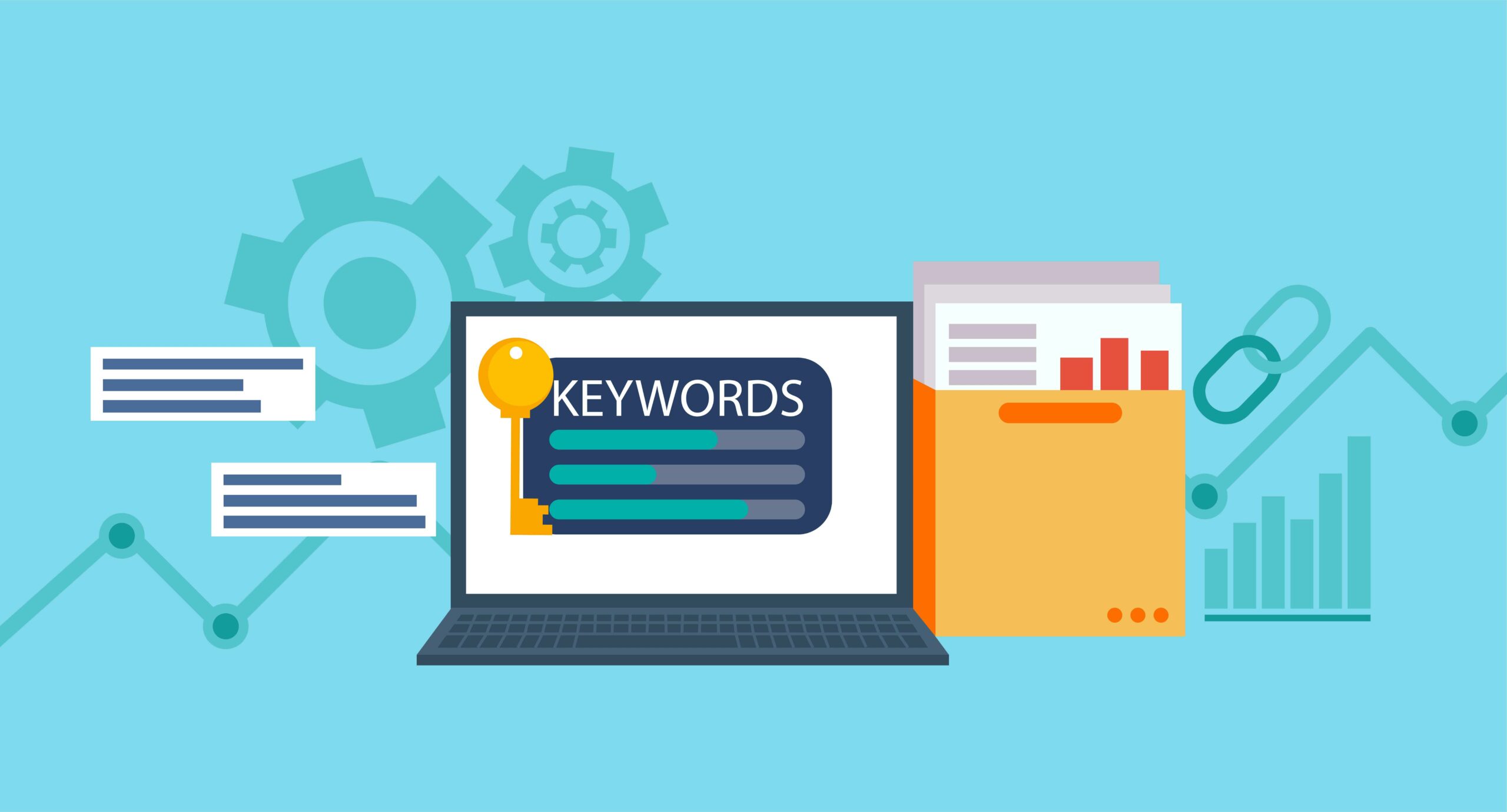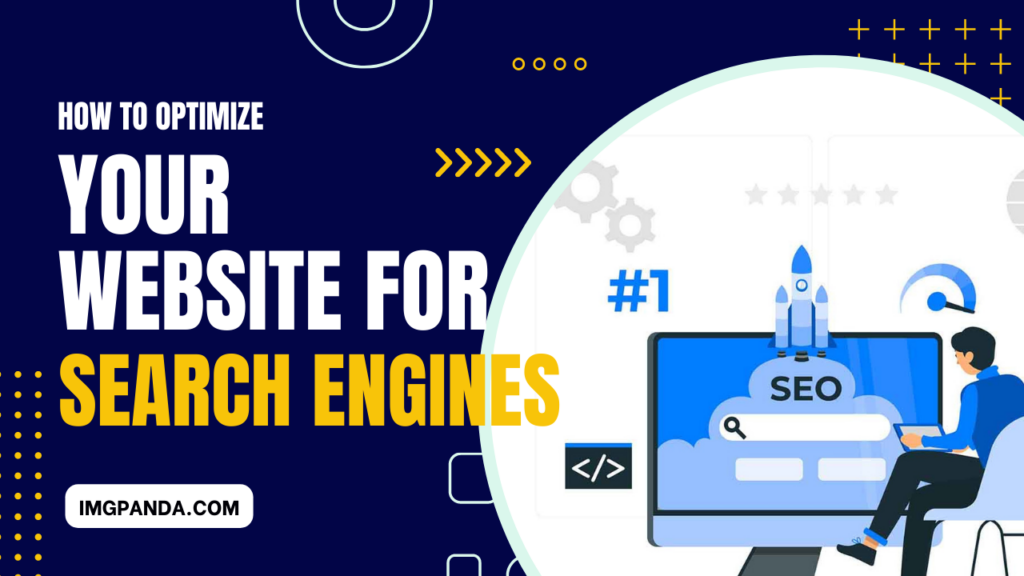Introduction
In today's digital age, having a website is essential for any business or individual looking to establish an online presence. However, simply having a website is not enough. In order to stand out from the competition and drive traffic to your site, you need to optimize it for search engines. Search engine optimization (SEO) is the practice of improving the quality and quantity of website traffic by increasing the visibility of your website in search engine results pages.
In this guide, we'll cover the essential steps for optimizing your website for search engines, from keyword research and selection to technical optimization, content optimization, and analytics.
Also Read This: StockSnap.io Review: Insights from a Photographer
Keyword research and selection
Keyword research and selection is a crucial step in optimizing your website for search engines. Keywords are the search terms that people use to find information on search engines like Google. By researching and selecting the right keywords, you can increase the chances of your website appearing in search results for those keywords. Here are the steps to follow for keyword research and selection:
Brainstorm potential keywords:
Start by brainstorming potential keywords that are relevant to your business or website. Think about the words or phrases that your target audience might use to search for information related to your business.
Use keyword research tools:
There are several keyword research tools available that can help you identify relevant and popular keywords for your website. Some popular options include Google Keyword Planner, SEMrush, and Ahrefs.
Analyze keyword competition:
Once you have a list of potential keywords, analyze the competition for each keyword. Look for keywords that have a high search volume but low competition, as these are more likely to rank well in search results.
Select primary and secondary keywords:
Based on your research, select a primary keyword that best represents your business or website. You can also select secondary keywords that are relevant to your business but have lower competition.
[caption id="attachment_182443" align="alignnone" width="2560"] Keyword research and selection[/caption]
Keyword research and selection[/caption]
Also Read This: Shutterstock Watermark Eraser: Your Weapon of Choice
On-page optimization
On-page optimization involves optimizing the elements on your website's pages to improve its ranking in search engine results pages. Here are the key components of on-page optimization:
Title tags and meta descriptions
The title tag and meta description are HTML elements that provide information about the content of your website. Make sure that your title tags and meta descriptions accurately describe the content of your pages and include your primary keyword.
Header tags and content optimization
Header tags (H1, H2, H3, etc.) help search engines understand the structure and content of your pages. Use header tags to organize your content and include your primary keyword in the H1 tag. Also, optimize your content by including your primary and secondary keywords throughout your pages in a natural way.
Image optimization
Images can improve the user experience and engagement on your website, but they can also slow down your website's loading time. Optimize your images by compressing them and including alt text that describes the image.
URL structure and optimization
Your website's URL structure should be clear and easy to understand. Include your primary keyword in the URL and avoid using numbers and special characters.
Internal linking
Internal linking helps search engines understand the structure of your website and the relationship between your pages. Include internal links within your content to help users navigate your website and improve your website's ranking.
By optimizing these on-page elements, you can improve your website's ranking in search engine results pages and increase the chances of attracting organic traffic to your website.
Also Read This: How to Leverage User-Generated Content for Your Business
Off-page optimization
Off-page optimization involves improving your website's ranking in search engine results pages through external factors, such as backlinks and social signals. Here are the key components of off-page optimization:
Backlinks:
Backlinks are links from other websites that point to your website. The more high-quality and relevant backlinks your website has, the more authoritative it appears to search engines. To improve your backlink profile, create high-quality content that other websites will want to link to, and reach out to other websites in your industry to request backlinks.
Social signals:
Social signals refer to the activity and engagement on your website's social media profiles. The more likes, shares, and followers your social media profiles have, the more authoritative your website appears to search engines. To improve your social signals, create engaging and shareable content, and actively engage with your followers.
Brand mentions:
Brand mentions are online references to your brand or website that do not include a backlink. While brand mentions do not directly improve your website's ranking, they can improve brand awareness and increase the chances of attracting backlinks in the future. To improve your brand mentions, monitor your online reputation and actively engage with users who mention your brand or website.
Also Read This: Adobe Stock vs Getty Images: Comparing Two Prominent Stock Image Providers
Technical optimization
Technical optimization involves improving the technical aspects of your website to improve its ranking in search engine results pages. Here are the key components of technical optimization:
Mobile optimization:
With the increasing use of mobile devices for internet browsing, it is important to ensure that your website is optimized for mobile devices. Use responsive design to ensure that your website looks good on all screen sizes and load times are fast.
Site speed:
Site speed is an important factor in both user experience and search engine ranking. Optimize your website's load times by compressing images, minimizing the use of plugins, and using a content delivery network (CDN) to serve your website's content.
SSL certificate:
SSL (Secure Sockets Layer) is a security protocol that encrypts the connection between your website and the user's browser. Adding an SSL certificate to your website not only enhances security, but also improves your website's search engine ranking.
XML sitemap:
An XML sitemap is a file that contains a list of all the pages on your website that you want search engines to index. Submitting an XML sitemap to search engines can help them crawl and index your website more efficiently.
Structured data:
Structured data is code that provides additional information about the content on your website, such as product details or business information. Implementing structured data on your website can improve its appearance in search engine results pages and increase the chances of attracting organic traffic.
By optimizing these technical aspects of your website, you can improve its ranking in search engine results pages and provide a better user experience for your visitors.
[caption id="attachment_182444" align="alignnone" width="2560"] On-page optimization[/caption]
On-page optimization[/caption]
Also Read This: Shutterstock Freebies: No Watermark Attached
Content optimization
Content optimization involves optimizing the content on your website to improve its ranking in search engine results pages. Here are the key components of content optimization:
Keyword optimization:
Use keywords relevant to your business or niche in your content, including in the page titles, headers, and body text. Avoid overusing keywords, as this can negatively impact your ranking.
Content quality:
Ensure that your content is high-quality, informative, and engaging. Use relevant images and videos to enhance the user experience.
Content length:
Aim for longer content, as longer articles tend to perform better in search engine results pages. However, ensure that the content is still high-quality and relevant.
Meta tags:
Meta tags, including the meta title and description, provide a summary of your website's content to search engines. Ensure that these tags accurately reflect the content on your website and include relevant keywords.
Internal linking:
Internal linking involves linking to other pages on your website within your content. This not only improves the user experience, but also helps search engines to understand the structure of your website.
[caption id="attachment_182445" align="alignnone" width="2560"] Off-page optimization[/caption]
Off-page optimization[/caption]
Also Read This: How many Twitter users are in the USA?
Monitoring and analytics
Monitoring and analytics are critical components of optimizing your website for search engines. Here are the key components of monitoring and analytics:
Website analytics:
Use website analytics tools like Google Analytics to track the performance of your website. Monitor metrics like traffic, bounce rate, and engagement to understand how users interact with your website.
Keyword ranking:
Use keyword ranking tools to track your website's ranking for important keywords. This will help you to identify areas where you need to improve your optimization efforts.
Backlink monitoring:
Backlinks are links from other websites that point to your website. Use backlink monitoring tools to track your website's backlinks and identify opportunities to improve your backlink profile.
Content performance:
Use website analytics tools to track the performance of individual pages or pieces of content on your website. This will help you to identify high-performing content that you can optimize further.
Competitor analysis:
Use competitor analysis tools to monitor your competitors' optimization efforts. This will help you to identify areas where you can improve your optimization strategy and stay ahead of the competition.
By monitoring and analyzing your website's performance, you can identify areas where you need to improve your optimization efforts and make data-driven decisions to improve your search engine ranking.
[caption id="attachment_182446" align="alignnone" width="2560"] Monitoring and analytics[/caption]
Monitoring and analytics[/caption]
"Monitoring and analytics are critical components of optimizing your website for search engines. By tracking metrics like traffic, engagement, keyword ranking, backlinks, and content performance, you can identify areas where you need to improve your optimization efforts and make data-driven decisions to improve your search engine ranking."
Also Read This: Commercial Ventures: Using Flaticon with Confidence
Conclusion
In conclusion, optimizing your website for search engines is essential if you want to attract organic traffic and improve your online visibility. Keyword research and selection, on-page optimization, off-page optimization, technical optimization, content optimization, and monitoring and analytics are all critical components of an effective optimization strategy.
By implementing these strategies, you can improve your search engine ranking and attract more visitors to your website. Remember to stay up-to-date with the latest best practices in SEO and to continually monitor and analyze your website's performance to ensure ongoing success.
FAQs
What is the most important aspect of SEO?
There are many important aspects of SEO, but perhaps the most important is creating high-quality, relevant content that meets the needs of your target audience.
How long does it take to see results from SEO?
SEO is a long-term strategy, and it can take several months to see significant results. However, the time frame can vary depending on the competitiveness of your industry and the quality of your optimization efforts.
Can I do SEO myself, or do I need to hire an expert?
You can certainly do SEO yourself, but it can be a complex and time-consuming process. Hiring an experienced SEO professional can save you time and ensure that your optimization efforts are effective.
Is keyword stuffing a good SEO practice?
No, keyword stuffing is a bad SEO practice that can actually harm your website's ranking. Instead, focus on creating high-quality, relevant content that includes keywords naturally.
Do I need to optimize my website for mobile devices?
Yes, mobile optimization is essential for SEO, as more and more people are using mobile devices to access the internet. Make sure your website is mobile-friendly and responsive to different screen sizes.









































